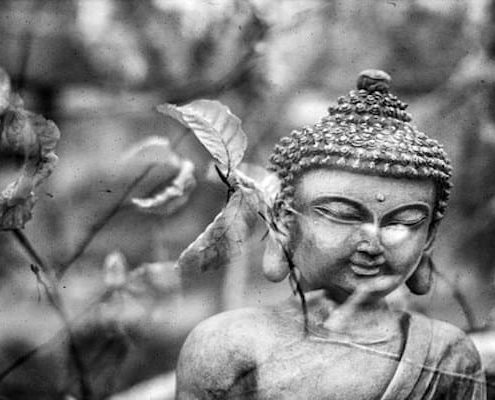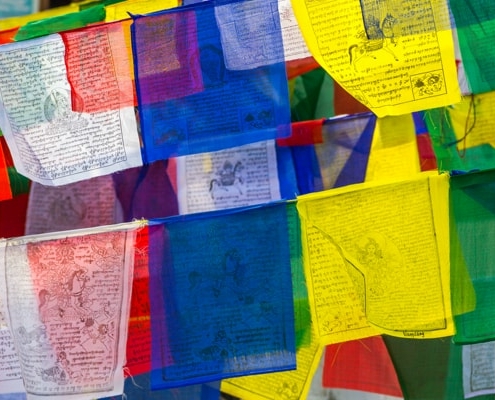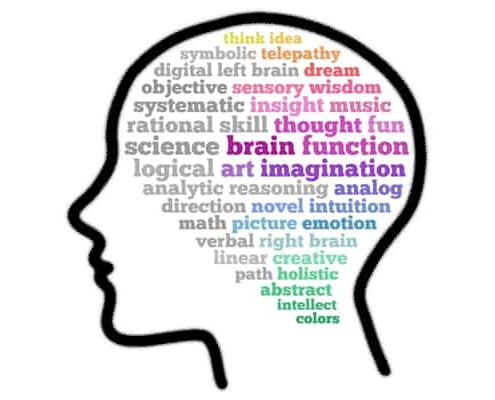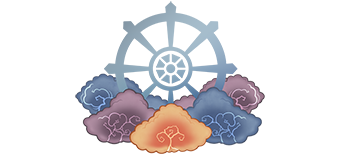
Article: Tonglen – An Integrated Energy Medicine Point of View
Applied Buddhist Psychology, Article, Buddhism, Compassion, Empowered Living, Geshe Pema Dorjee, Inner Wisdom, Integrated Energy Medicine, Isa GucciardiBy Joanna Foote Adler, PsyD, CHT
Much has been written on the practice of Tonglen, the Tibetan Buddhist meditation practice of giving and taking. Tonglen is a powerful and important practice in many of the schools of Buddhism. I would like to offer some thoughts to add to this literature from the perspective of Integrated Energy Medicine as it is taught at the Foundation of the Sacred Stream, which will hopefully help to focus this practice for western practitioners in a skillful way.
Article: The Unseen Teacher
Applied Buddhist Psychology, Applied Shamanism, Article, Buddhism, Depth Hypnosis, Empowered Living, Inner Wisdom, Isa GucciardiBy Isa Gucciardi, Ph.D.
Teaching and learning have never been separate for me. As a learner, I have always been keenly aware of the fact that I am being taught from within as I try to master a skill. I can feel the internal teaching change me in a different way than the external learning changes me. I remember being taught how to sight read as I was learning to play the piano. My piano teacher taught me the concept of matching the notes on the page with the notes on the keyboard, but when I read the notes on the page, I could feel an unseen teacher aligning me with the music. I was being taught how to play the piano, but I was also learning a new alignment to the world.
Article: The Journey: Buddhism and Shamanism at the Crossroads
Applied Buddhist Psychology, Applied Shamanism, Article, Buddhism, Depth Hypnosis, Inner Wisdom, Isa Gucciardi, Shamanic Journey, The Eightfold PathBy Isa Gucciardi, Ph.D.
We live in a time of paradox. On the one hand, wars and conflicts of all sorts rage all around us. The Earth is buckling under the effect of them. We also live in a time where there are opportunities for innovative solutions to our situation. We could focus on different types of innovations – technology, new ways of doing business, and more. But here, I would like to focus on the new spiritual and healing possibilities that are emerging to address this crisis. These approaches to addressing the difficulties of the current time can help us explore consciousness in ways that might not be accessible in less tumultuous times.
Blog: Personal Responsibility: An Interview with Isa Gucciardi, Ph.D.
Applied Buddhist Psychology, Blog, Empowered Living, Inner Wisdom, Isa Gucciardi, Personal Responsibility, RelationshipsQuestion: How would you define personal responsibility?
Isa: Personal responsibility is a process of becoming more self-aware, understanding your motivations, your intentions, and the effect your actions and thoughts have on you and those around you. It involves a willingness to contemplate the consequences of your emotional responses, and the ability to recognize when those expressions are harmful and when they are beneficial.

Buddhist Meditation in Depth Hypnosis
Applied Buddhist Psychology, Blog, Buddhism, Depth Hypnosis, Empowered Living, Inner Wisdom, Isa Gucciardi, Mind TrainingBy Isa Gucciardi, Ph.D.
Depth Hypnosis is a therapeutic process that blends elements of Shamanism, Buddhism, transpersonal psychology, hypnotherapy, and energy medicine. Buddhism is one of the main engines of Depth Hypnosis, and meditation is one of many tools we use to help clients alter their state of consciousness. Meditation enables clients to shift their focus from their "thinking minds" to their inner experience.
Article: The Future of Buddhism in the West
Applied Buddhist Psychology, Article, Inner Wisdom, Isa Gucciardi, Robert Thurman, Thupten JinpaBy Isa Gucciardi, Ph.D.
Arnold Toynbee, the noted British historian, remarked that the most important event for the West in the twentieth century was to be its encounter with Buddhism. We in the West are still in the early days of this encounter and there are still many facets of this encounter that have yet to be worked out or made evident. Yet, by examining the challenges that have arisen in this encounter, we may be able to discern the trajectory of the future of Buddhism in the West.
Article: The Eightfold Path as an Ethical Compass in the Therapeutic Environment
Applied Buddhist Psychology, Article, Ethics, Inner Wisdom, Personal Responsibility, The Eightfold PathBy Isa Gucciardi, Ph.D.
Ethics is generally defined as a process of determining right and wrong conduct or as the study of morality. In many traditions, both sacred and secular, there is an effort to come up with a set of principles to govern behavior. In many traditions, there is an emphasis on "what bad thing will happen if you don't do the right thing." The motivator to good behavior is fear. This is an effective method of crowd control when the luxury of understanding personal motivation and intention cannot be understood on a case-by-case basis. But it falls short in creating conditions under which people can learn how to truly trust their motivation and intention in making decisions regarding their conduct.
Article: Personal Responsibility: A Buddhist Perspective on Relationship
Applied Buddhist Psychology, Article, Empowered Living, Energetic Patterns, Habits, Inner Wisdom, Karma, Personal Responsibility, RelationshipsBy Isa Gucciardi, Ph.D.
Relationship forms the core of our experience as humans. We define ourselves and are defined by the nature of our relating. In Buddhism, there is a concept called “interdependence” which postulates that nothing exists independently. Everything exists interdependently. Applying this concept to relationship implies that we do not and cannot exist independently of one another.
